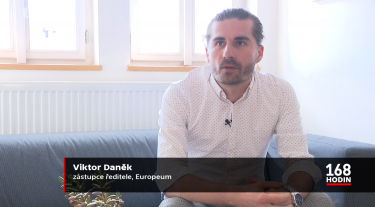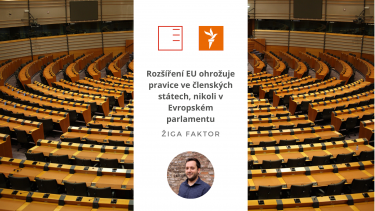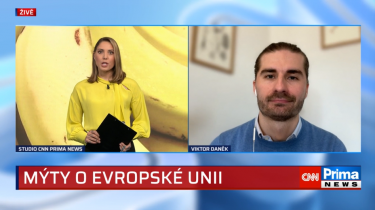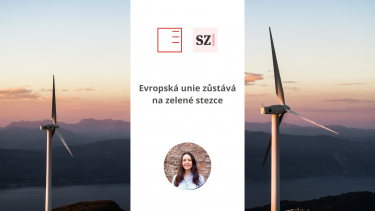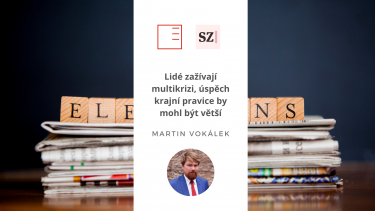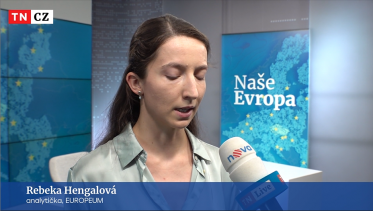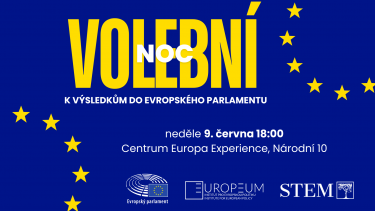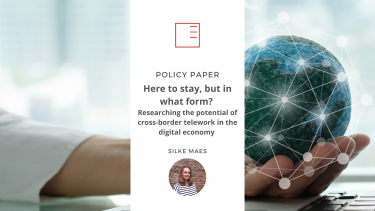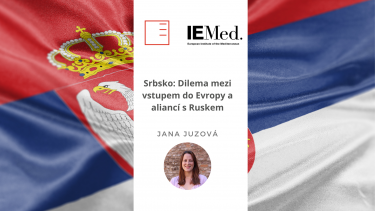ČT24 | Czechs voted for the European Parliament. How was the campaign?
For the fifth time Czech voters choose their representatives to the European Parliament. Almost 700 candidates competed for 21 seats. What did they offer and what was the campaign like? Viktor Daněk, deputy director of EUROPEUM Institute for European Policy, comments for Czech Television's investigative programme 168 hodin.
Show moreRadio Free Europe | EU Enlargement is threated by the far right parties in Member States, not in the European Parliament
Even thought parties belonging to the far right achieved good results in the European elections, their growth was not enough to have a major impact on politics in the future European Parliament. What developments can we anticipate with regard to the policy of enlargement of the EU after the elections? Žiga Faktor, deputy director and head of EUROPEUM Institute's Brussels office, comments on the situation for Serbia's Radio Free Europe.
Show more
CNN Prima News | Myths about the European Union: How disinformation threatens our values and how to counter it?
Many myths, hoaxes, and lies circulate about the European Union. Despite the spread of this information, decisions in Brussels are not made "about us without us," and the European Union does not plan to ban curved cucumbers and bananas. Why, then, do these disinformations spread? And how can we prevent them? Viktor Daněk, Deputy Director of EUROPEUM Institute for European Policy, comments for CNN Prima News.
Show moreSeznam Zprávy | The European Union remains on the green path
The green parties has weakened, while the eurosceptic, far-right and climate-sceptic factions have strengthened. However, this is unlikely to be a significant obstacle to the implementation of the Green Deal for Europe. The parties behind it have retained the most seats. What implications will the results of the European Parliament elections have for the Union's climate and environmental policy over the next five years? Senior researcher of EUROPEUM Institute Kateřina Davidová commented for Seznam Zprávy.
Show more
Seznam Zprávy | People experience multi-crisis, success of the far right could be greater
Despite the rise in support for the far right in most countries, the direction of the EU will not fundamentally change. The People's Party maintains its position as the strongest faction and gains support from centrist parties. The victory of the extreme right in the elections signals the strengthening of conservative and populist parties. However, it is expected that key issues such as the environment and migration will remain on the agenda. The election result does not signify a radical change but serves as a signal to focus on voters favoring conservative and far-right parties. Martin Vokálek, Executive Director of EUROPEUM Institute, commented on the results for Seznam Zprávy.
Show more
TV Nova | How does the Czech public view climate change and the development of renewable energy sources?
Before the upcoming elections to the European Parliament, a debate was held on TV Nova among the leading figures of the seven main political parties, movements, and coalitions. Discussions revolved around important issues such as the migration pact or the conflict in Ukraine. Rebeka Hengalová, a research fellow at EUROPEUM Institute, provided an analysis for TV Nova on how the Czech public views climate change and the development of renewable energy sources.
Show moreElection night on the results of the European Parliament elections
We invite you to the event organized by the European Parliament Office in the Czech Republic, EUROPEUM Institute for European Policy and STEM Institute for Empirical Research. The evening will include two debates on the evaluation of the European Parliament and what challenges await the new one and the European elections and the future of Europe. Speakers include former MEP Pavel Telička and Vendula Kazlauskas from the Association for International Affairs. More information and a detailed programe of the evening can be found below.
Show morePolicy paper | Here to stay, but in what form? Researching the potential of cross-border telework in the digital economy
The rapid uptake of telework, facilitated by digitalisation, has upset a system based on physical presence in the workplace in the EU. Especially since the pandemic, telework has become increasingly prevalent and an integral part of employees’ working and expectation patterns. Our research fellow Silke Maes covered this topic in her policy paper, highlighting the challenges and opportunities telework presents for cross-border coordination.
Show morePolicy paper | Zůstane, ale v jaké podobě? Výzkum potenciálu přeshraniční práce na dálku v digitální ekonomice
Rychlé rozšíření práce z domova, které podpořila digitalizace, narušilo systém založený na fyzické přítomnosti na pracovišti v zemích EU. Zejména od pandemie se práce na dálku stala stále běžnější. Naše výzkumná pracovnice Silke Maes se tomuto tématu věnovala ve svém policy paperu, v němž zdůraznila výzvy ale i příležitosti, které práce na dálku představuje pro přeshraniční koordinaci.
Show moreIEMED | Serbia: The Dilemma between European Accession and Alliance with Russia
With Ukraine’s defence against Russia heading toward a stalemate in the second half of the year and increased pressure inside the EU to deliver on its promises to provide the country with needed financial and military support, Serbia’s ambiguous relationship with Russia and the West has been brought increasingly into the spotlight in 2023. The Serbian Progressive Party (SNS), ruling since 2012, and President Aleksandar Vučić have been responsible for continued democratic backsliding and have failed to align with the Union’s foreign policy during Serbia’s lengthy EU accession process, pushing the situation closer towards a tipping point in Serbia-EU relations. Senior researcher at EUROPEUM Institute, Jana Juzová, describes this in more detail in her article for the European Institute of the Mediterranean.
Show moreStaroměstské náměstí 4/1
Prague 1 - Staré Město
110 00
tel.: +420 212 246 552
email: europeum@europeum.org
https://www.europeum.org
